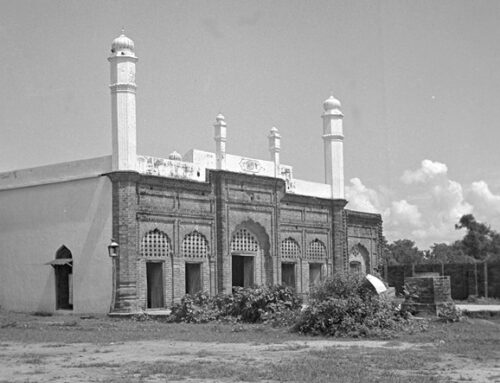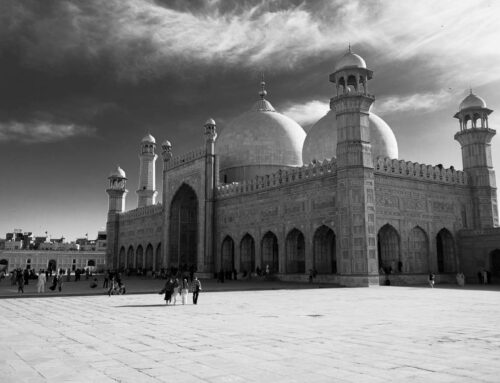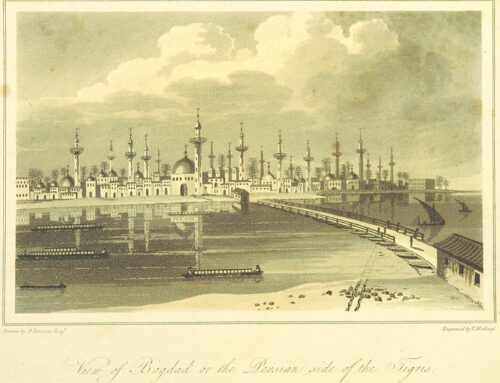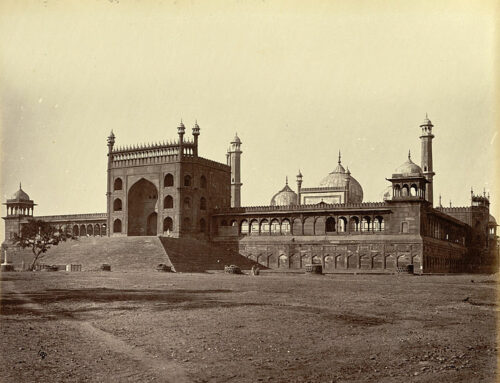Translated by Shaykh Yusuf Laher
[1 – 25] Part One
[26] By Committing Sin the Desire for It Increases
It is a philosophical fact that strength is added to that faculty which is regularly used. Thus, by using the gaze in the wrong place one does not become satisfied, but the urge to again use the gaze wrongfully becomes entrenched and gains strength. One should not be fooled by the temporary satisfaction gained after looking, for, it is short-lived.
By way of example, a person in the habit of chewing tobacco gains temporary relief after chewing it. Later on, the desire to chew again is increased and becomes stronger.
Another example is when a tree is watered, the water disappears from sight after a short while. The water has not really disappeared, the branches and leaves will draw from it making them stronger and the roots will also gain strength from it. Thus, a person who acts on his [impermissible] impulses is not decreasing his desires but is actually watering them (giving them strength).
[27] Fight Sin and Achieve Taqwa
Friends! For nur (divine light) to be achieved, even though the urge for committing sin is present, one has to vehemently oppose it. When the urge is present and one fights it, the house of taqwa (fear of Allah) is lit. The greatness of taqwa becomes apparent by opposing the desires. The urge for committing sin will not be eliminated, but will definitely be weakened. This is also a great achievement that the enemy becomes weak.
[28] Moderation in Actions
A saint observes moderation in ‘ibada (worship) and in ‘adat (habits). The hope for consistency is based on moderation, which is a requirement of din. Extremism (taking actions to an excessive and overwhelming degree) results in regret, grief and one becomes dispirited which often results in the discarding of actions altogether. Extremism results in immediate abundance of actions but a discontinuation of them in the future.
[29] Removal of Anxiety and Grief
It is mentioned in a hadith that to believe [firmly] in taqdir (predestination i.e. whatever Allah has willed will happen) removes anxiety and grief.
[30] Laws Regarding Calamities and Distress
(a) A person should adopt sabr (patience and perseverance) when caught in a calamity. This is the appropriate conduct of a mu’min. A hadith of Allah’s Messenger (Allah bless him and give him peace) says: The condition of a mu’min is wonderful; when goodness reaches him he makes shukr (he is grateful and offers thanks unto Allah). And when a calamity befalls him he adopts sabr. Both these attitudes are beneficial unto him. (In the case of goodness he is rewarded for his shukr and in the case of a calamity he is rewarded for his sabr, thus, both these conditions are beneficial).
(b) When in a calamity, do not become despondent of the mercy of Allah. Keep on hoping for His grace and kindness, for there is also something else above the adoption of the means, i.e. Allah.
So, one who does not believe in taqdir will utter words of despondency. The method of the pious is rida bi ‘al-qada’, i.e. remaining pleased with taqdir at all times.
(c) Because of the calamity, do not become negligent with regard to the commands of the Shari’a.
(d) Continuously make du‘a for the removal of the calamity. Also adopt the ways and means of removing it but do not consider the means as the ultimate. (Effectiveness in the means and success comes from Allah). The reason for being instructed to make du‘a is that without du‘a the material means are devoid of baraka (blessings).
(e) Continuously make istighfar – repent and seek pardon for sins.
(f) When seeing another Muslim in a calamity, consider it to have befallen oneself. Assist him and place the means [of removing the calamity] at his disposal, just as you would have done if you were caught in such a calamity.
[31] Reformation of the Wives
Studying of dini kitabs (religious texts) by women will suffice for their islah (reformation). To find a woman among them whom, by her manners and traits can become an example for other women is nearly impossible. Also, they will lose faith in their husbands. They should stick to studying and hearing kitabs read to them. The husbands should make an effort with regard to the islah of the wives. The islah being accomplished is not in their (husbands) hands. If the husbands read and explain the kitabs to them, they (the husbands) have fulfilled their responsibility and will be free from being questioned about it.
[32] The Naturally Humorous Person
A person who is playful and humorous is one whose nafs (lower self) is dead and ruh (soul) is alive. One who is cheerful is a good person. On the other hand, one who displays artificial cheerfulness is one whose ruh is dead and nafs is alive. Such people have kibr (pride) in them. The humorous ones do not have pride.
[33] Acquisition of Peace
The less a person acquires of the dunya (material things) the more peace he achieves.
[34] Allah is the Provider
A person heard that Hadrat Thanawi had not accepted the estate of his late father. Upon this the man remarked: “If Hadrat did not accept the estate its fine because Hadrat has no children.” (Translator: Hadrat did not accept the estate due to certain Shar‘i reasons) The person further said that a person with children does not have a choice but to accept [to provide for the children]. Hadrat replied that this took place when I was twenty years of age, when I did not even know whether I was going to have children or not. But, my belief is that even if I had children, Allah would provide for them. After all, I am also someone’s offspring and Allah is providing for me!
[35] Fulfillment of Needs
The means of fulfilling the needs of the dunya and akhira (hereafter) is istighfar (repentance).
[36] Appreciation of The Wives
For two reasons husbands should appreciate their wives at all times:
(1) A wife is like a captive unto the husband and it is unmanly and cowardice to ill-treat a captive.
(2) Appreciate her because of the din. Both of you are Muslims. Like you, she also performs dini actions and one does not know who among you has been more accepted by Allah. This is not a general rule that a woman is lower than a man in every aspect. It is highly possible that by Allah she holds the same position as the man or even higher! Do not think low of the womenfolk. Allah Most High accepts the seemingly small and insignificant deeds of the helpless, broken hearted person and raises her status through it (more than the husband).
[37] Cure for Stray Thoughts
The remedy for stray thoughts (wasawis) is to ignore them. The hadith sharif instructs us to spit thrice towards the left side (without spittle). This also indicates that they should be ignored and not given due attention.
[38] Duty of The Bondsman – Acceptance
The duty of the bondsman is to remain pleased with whatever condition he is kept in. If he is raised on an elephant (given honour and comfort), he should be pleased, and if he is tread upon by asses, he should accept.
[39] Company of The Saints
During a lesson of Mathnawi Sharif Hadrat said: “The company of the Ahlullah (saints) [lit: the people of Allah], is ‘like being’ in the company of the Messenger of Allah (Allah bless him and give him peace)”.
[40] Appreciation of Wealth
Friends! Appreciate wealth for it is an aid in your material life. Spend with intelligence and understanding. If you truly have the zeal and passion of spending, then test your courage by spending in the path of Allah!
[41] Reply to a Written Greeting
To reply to a written greeting (salam) is wajib (compulsory), whether the reply is in writing or verbal.
[42] Reformation the Object
The main object is islah (reformation). Having knowledge is not a requirement for islah. In fact, knowledge without suhba (company of the pious) is worthless. The islah of a person without knowledge but who adopts the company of the pious is easier. I usually advise people to send their secularly educated offspring to the pious, for they will benefit greatly from this. We promise that we will not question the length of their trousers nor their beards. We will not punish them regarding their salat. Just by sitting together we will develop an attachment and affection for each other. The result is that an affinity with din will be formed. This affinity is the root and foundation. ͑Ilm (knowledge) and ͑amal (practice) are the branches. All the Sahaba (Companions) were not ͑alims (scholars). Whatever they gained, they gained through suhba. The Ahlullah have always taken great care regarding suhba. They concentrated more on suhba than on knowledge.
[43] The Method of Reaching Allah
I have repeatedly advised students and people in general that if they become firm in two matters, I guarantee they will reach Allah: (a) discarding of sin and (b) speaking less. As well as a little time spent in solitude for zikr (remembrance of Allah) and fikr (contemplation).
[44] Benefit of Keeping Contact with The Pious
Keeping contact with the pious rectifies persons din. Through this contact he also receives baraka (blessings) in his dunya but should not have the intention of receiving this worldly benefit. For example, a person proceeding for Hajj will also see and visit Bombay and also experience a journey by ship (if travelling by ship) but this should not be his intention and goal. (The intention is Hajj and the other things are incidental).
[45] Instant Eradication of Pride
A person came to me in Keranah (a village in India) to give bay‘a (pledge). He also brought a tray of sweetmeats but with someone else carrying it. I realized that this person had an effect of pride in him (otherwise he would have carried it himself, but considered it below his dignity). Incidentally, I had to visit a few places, so I told him that I have to go and see a certain person and don’t have the time to make him bay‘t here. I told him to join me and maybe I will make him bay‘t there. He now joins me carrying the tray in his own hands. After reaching, I told him the same i.e. there is no time here, let us go to the next place. I had him carrying this tray around from house to house for two hours. I also ensured that we pass through the market- place so that people could see him carrying this tray. After being vexed for quite a while, and realizing that this evil of pride has left him, I finally made him bay‘it and also explained to him the wisdom of my action. Thus, a malady (pride) which is sometimes not eradicated through years of effort and devotion, by the Grace of Allah, was eradicated in this manner within two hours!






